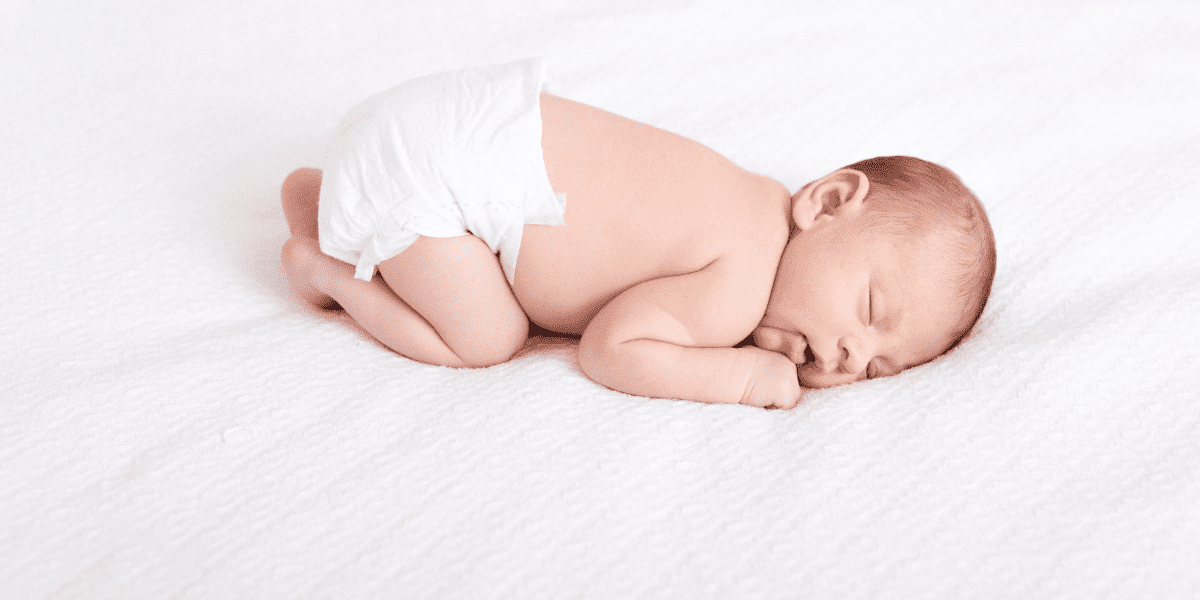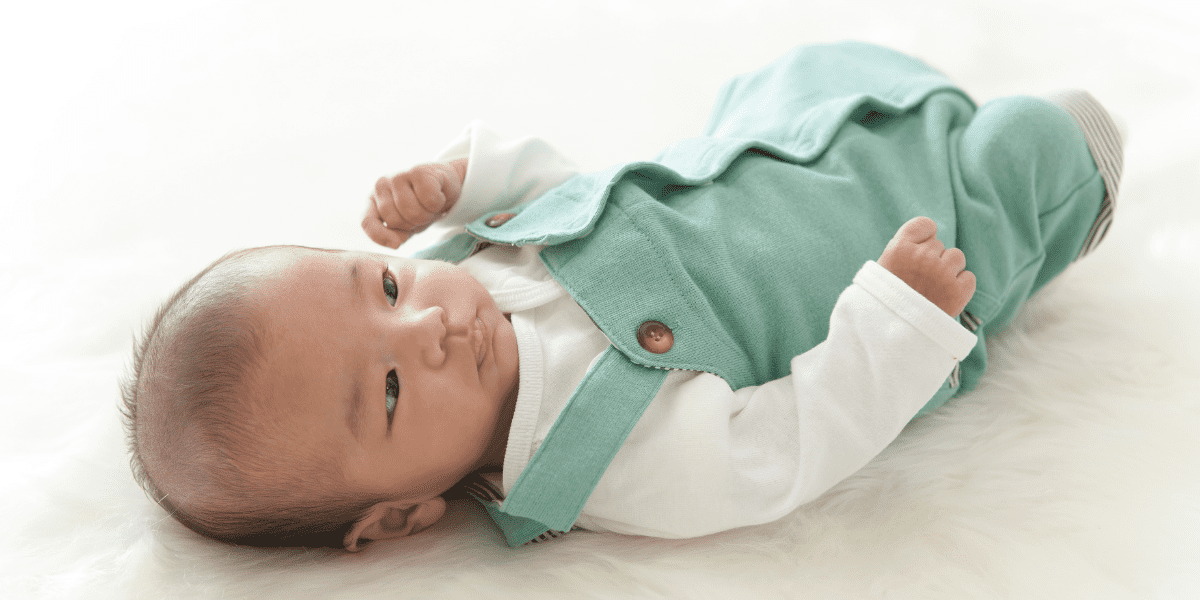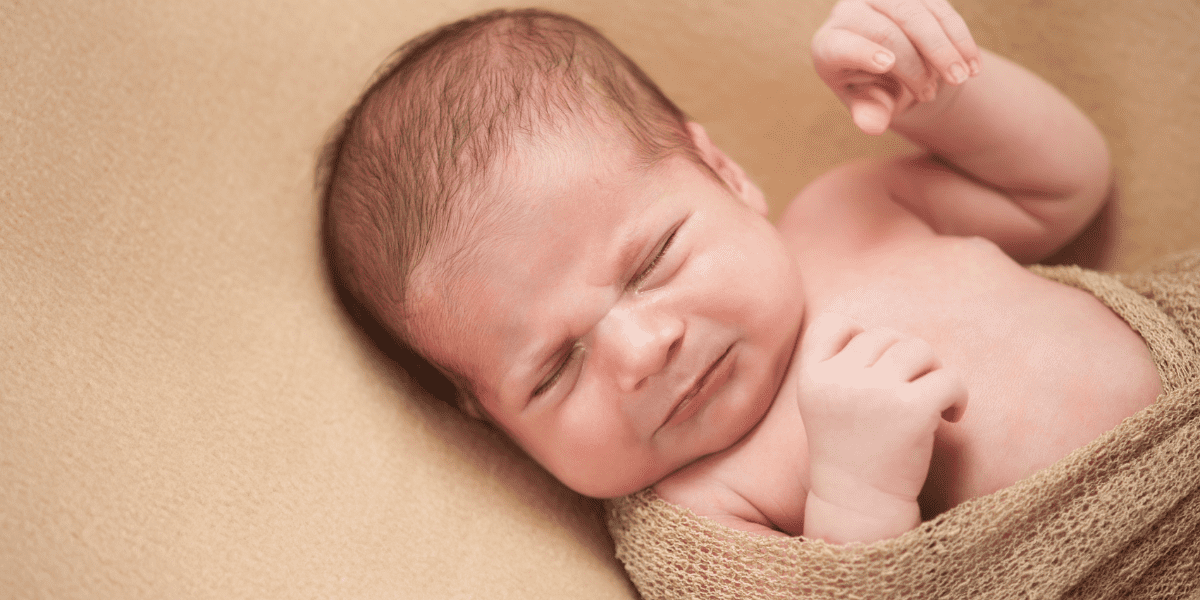As a parent, whether with a kid before or not, your baby’s health is probably the most important thing to you. Any sniffle has you tense so the first time your baby decides to fake a cough, you will very likely become anxious.
An alarm has set in and you start to suspect the worst. You rush over to the baby’s side to see how they’re doing and they smile and chuckle at you. Is this the first indicator that your infant is learning to attract your attention rapidly, or is anything wrong? Continue reading to learn more.
As an Amazon Associate I earn from qualifying purchases. The links below may be affiliate links. Please read my disclosure policy for more information.
Is It Normal for a Baby to Fake Cough?
The new phenomenon of the phony cough of a baby is, for the most part, an act designed to elicit a response in some way. This smart infant just discovered that noises get them a cuddle or you respond by speaking to them or cleaning their nose.
Early on, babies discover communication methods, and they discover that if they make coughing sounds, you will pay attention to them.
You’ll also notice that if you start coughing, they’ll try to imitate you. In pre-speech development, you do not need to be concerned about this. Your baby learns to make these noises before they can articulate words.
In fact, they just might be learning to recognize sounds when they fake a sneeze or a cough.
Your baby is now increasingly social and is communicating better and that is apparent through this fake cough. Usually, this begins to appear around the age of six months and is a sign that they are becoming more aware of their surroundings.
It is acceptable that they get the attention they seek; go ahead and smile or pretend to cough along. You could eventually make a game out of it. Let’s talk about these in-depth.

Attention Seeking
Your attention is what your baby is often going for when they cough. This little darling has understood that you will come running when he or she coughs so if they want to see you, they’ll do it. It will be difficult to stop an already clingy baby from doing what they know to get your attention.
Playfulness
Your baby’s early years are characterized by the need to play so everything becomes a game. This is why there is a likelihood that your baby’s cough is an endeavor to have fun.
You shouldn’t be surprised because getting you to react has become a shiny new game that must be played. They often start to feel like your reaction to their fake cough is a fun little game they enjoy.
You may notice that your baby will start to smile or giggle when you react to a fake cough.
Drool Production
The human salivary glands become active two months after birth. This is why babies seem to leak a lot of drool.
They lack control and so they need to grow up to figure out the use of saliva. They are clueless on whether to spit or swallow.
They may even not know that spitting or swallowing are options. At this point, as we said before, all babies know how to play so that’s exactly what they do. Of course, their play is going to include a couple of fake coughs.
Strength of Hearing
From week 25 or 26 of pregnancy, babies can already perceive sound. They are born with hearing as one of the strongest senses.
The sound eventually becomes one of the strongest tools of development for your child because their sight isn’t as strong in their early months.
Little wonder why baby toys make a lot of different noises. Babies end up relying a lot on the things they hear. All of this is to say that your baby’s fake cough might be happening because he or she wants to hear the sound over and over again.

Speech Development
When your baby gets the ability to fake a cough, it could be a sign that their speech skills are starting to develop. Babies start to speak by mimicking sounds they hear from adults and it often starts with coughs and sneezes. The fact that you coughed within range of your little one is all it takes for them to begin coughing.
When Is the Time to Stop Baby Fake Cough?
You may start out enjoying the cute game of cough and attention you play with your baby but it stops getting cute after a while. By the time your child is between 15 and 18 months old, it is time for you to control and try to stop this behavior.
Your child is nearing or is already at preschool age by then and may want to mimic other children who may be coughing for real because they are sick.
They may see the attention a sick friend gets and want it too but have no idea how to ask for it. You need to gently tell your child why the other kid is coughing for real. Calmly explain that they need to ask for what they need plainly rather than using other tricks.
You may have luck getting them to stop if you threaten an early bedtime on the grounds of sickness. When you make good on your threat for a while, they will realize that they can no longer get your attention.
Telling The Difference Between A Fake Cough And A Real One
The biggest fear parents have is mistakenly treating a real cough as fake. How do you differentiate between a mischievous baby and a sick one? Here are some things you could do.
Use a thermometer if you discover a fever in your little one while they are coughing often, you should visit a hospital. The same applies to a runny nose as colds come with coughs. You could risk things like bacteria causing bronchitis or pneumonia if you ignore a fever that exceeds 101°F or a runny nose.
You should also see a doctor if you notice your baby is drooling a lot more than usual or is generally cranky and fussy. Your baby having difficulty falling asleep on their tummy could also be an issue. If you notice your infant has developed poor feeding habits or you notice that their skin is pale or any change in color in their mouth region, you should also seek help.
If your infant appears to be “faking coughing” yet is showing an indication of sickness, you should call a doctor right away. If there are displays or signs of inhaling or swallowing anything they could have grabbed, get medical help right away.
Another reason your infant may be coughing is if he is suffering from a respiratory infection. Take your child to the doctor if he displays signs of trouble breathing.

When there are problems going to sleep, bowel issues, and refusing to eat, and all of this is accompanied by coughing, then he or she is most likely sick.
Your child may have allergies due to allergens in the environment that causes him to cough. You need to make an effort to find where the allergens have cloistered and remove your child from it.
In a lot of cases parents have reported, allergy coughs are caused by a dusty stuffed toy or a cushion. You may decide to wash it or throw it out.
Acid reflux can also affect the throat, causing them to cough. Ask a doctor to specify if your child’s cough is caused by reflux and to seek treatment. immediately.
Coughs that are dry, wet, whooping, barking (croup) coughs, nocturnal coughs, and coughs that produce mucus. A whistling sound is heard along with the cough. , as well as other coughs, necessitate medical attention and remedy. A newborn can’t keep a phony cough for very long, so if they’re coughing non-stop, get medical attention.
Being able to fake a cough is prevalent in infants but it’s always better to choose safety. As a result, seek for symptoms that your child requires medical scrutiny and discuss with a pediatrician to ensure that your child is safe.
The Bottom Line
Note that babies who mimic cough for longer periods of time or who have a habit of coughing without any actual sickness are uncommon. Because an ill or disturbed infant prefers to cry, a baby will rarely pretend to cough to inform you to see their ill state.
Although it may be amusing watching your child try to imitate a cough, enabling them would be the wrong thing to do. If babies do it frequently, it might become irritating for parents over time.
When your baby grabs a hold of your attention, he or she will pretend to cough again. Instead of faking or imitating a cough or sneeze, teach them other ways to express themselves with you especially with other sounds.
